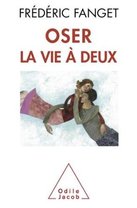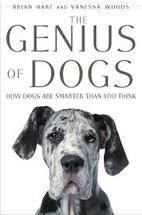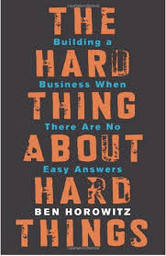 (Yes, this post is in French, which I thought would be fun to do for a French book.) J'ai fini enfin le livre en français sur les relations que ma grand-mère a acheté pour moi l'année dernière: Oser la vie à deux de Frédéric Fanget. Le livre m'a beaucoup plu et a été écrit par un psychologue qui a beaucoup d'expérience avec les problèmes qui confrontent les couples modernes. Son modèle de "1+1=3" montre son idée de penser toujours à et garder l'individuel de tous les deux personnes (les deux 1) en même temps que garder le couple (le 3). Ci-dessous sont mes notes sur les points clés du livre.
0 Comments
 A year isn't a good year without reading some dog literature. So I wanted to make sure 2014 wasn't lacking in that department and read The Genius of Dogs: How Dogs Are Smarter Than You Think by Vanessa Words and Brian Hare. It was a lot of fun. I enjoyed the term that the author coined for the field he studies: "dognition." I was amazed to learn how incredibly smart some dogs can be, learning to recognize 800-1,000 words in some cases (!). I found it very interesting how many of the techniques used to study human infant learning applied directly to studying dog cognition, and how many lessons that we learned from dogs can apply to helping us understand human cognition as well. I was surprised by how many new things I learned about the evolution of dogs and domestication (a lot of what I considered true before, like the idea of humans domesticating dogs, is a myth). The idea that surprised and struck me the most was that dogs may have actually domesticated us. This book featured a mix of stories about the author's dogs as well as a review of many of the recent scientific studies that have been performed to understand animal cognition. I liked how the author distinguished clearly between studies that found significant results and those which were inconclusive. Here are my biggest overall takeaways, and below are my notes.
 A fellow entrepreneur recommended I check out The Hard Thing About Hard Things: Building a Business When There Are No Easy Answers by Ben Horowitz. I'm glad I followed his advice. Coincidentally, in the last week, both Brad Feld and Fred Wilson also read or mentioned this book highly, and now I understand why. This book chronicled many of the nitty gritty stories from the days when Ben was the CEO of Loudcloud and Opsware. I really enjoy books that are based on specific facts and experiences of the author and where a lot of the details about how deals came together, how hiring was done, and how people were managed are explicitly discussed at a low level (instead of in generalities). For example, this book is filled with specific tips on what to ask in interviews, how to integrate senior execs, and how to make really hard decisions where both options suck. I liked all the hip hop lyrics excerpts which inspired Ben and which fit with each chapter's main lessons. It was a stark contrast that really worked. Here are some of my biggest takeaways from the book, and below are my full notes.
|
Archives
June 2024
Categories
All
Subscribe |
 RSS Feed
RSS Feed
